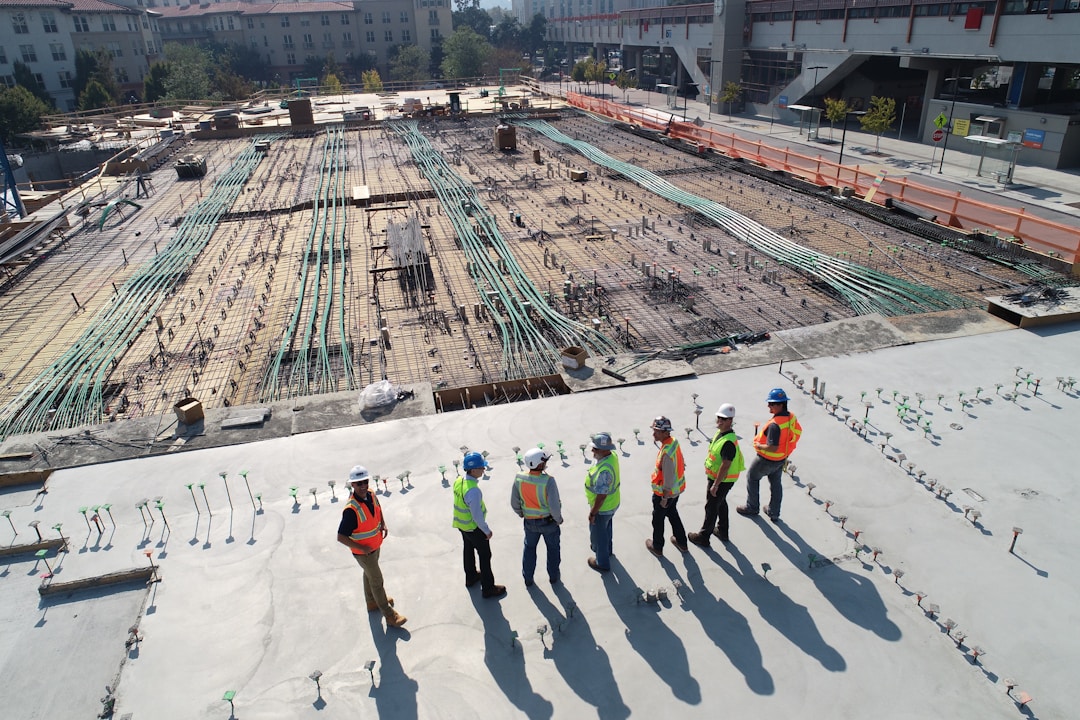Are you ready to embark on the exciting journey of starting your own construction business? Comprehensive planning and understanding of the nuances might help you navigate and create a well-established business. In this article, we’ll bring light to some of the typical prerequisites of starting a construction firm, from identifying the necessities and understanding legal requirements to devising an effective business plan and hiring the ideal team.
The Necessities of Launching a Construction Business
The journey of launching a construction business begins with understanding what is needed in the initial stages. Deadlines, client relations, and unexpected issues require savvy problem-solving skills and the ability to handle stress effectively. Equally important is gaining hands-on industry experience.
Investing in reliable equipment is crucial. The construction industry relies heavily on machinery, materials, and tools. Choosing high-quality, dependable equipment can significantly impact the efficiency and overall success of your projects.
Any business faces potential risks, but they’re especially prevalent in the construction industry. One crucial aspect of managing these risks effectively is securing commercial construction insurance. This protects your business from financial losses due to situations like property damage, personal injuries, and legal issues.
Having a clear understanding of your target market aids in aligning your business goals. It’s crucial to stay aware of current trends within your demographic to ensure your services remain relevant and appealing.
Understanding the Legal Requirements of Starting a Construction Business

The legal elements of starting a construction business may seem daunting but are necessary for operating legally and safely. Licensing requirements represent one of those variables. They vary widely depending on your state and the type of construction work your business will conduct.
Understanding construction permits is another significant aspect. Permits are required to ensure all work complies with local, state, and federal regulations. Failing to obtain the necessary permits can lead to severe penalties and delays in your projects.
Employment laws are another area to navigate when setting up a construction business. These comprise federal and state regulations about minimum wage, overtime, working hours, and safety requirements.
Finally, environmental laws governing how construction projects could affect the environment must be taken into account. These regulations focus on aspects like waste disposal, runoff, and emissions.
Steps to Craft a Strong Construction Business Plan
A robust business plan stands as the fundamental pillar of any successful business. It must include a detailed overview of your business, such as services, target market, marketing and sales strategy, and financial projections.
Your business plan should begin with an executive summary introducing your construction business. Remember, this represents your firm’s pitch, so ensuring clarity and conciseness is vitally important.
Focusing on the market analysis section, present a snapshot of the construction industry, your competitors, and your target audience. Always research and present precise data to accentuate your business’s potential to succeed in your target market.
Lastly, consider your future plans. Display the tactics you’ll employ to grow and stabilize your business over time. This encompasses aspects like market penetration, channel development, and potential partnerships.
Setting up Your Construction Team: Guide to Hiring and Training

The foundation of a successful construction business lies within the team of skilled professionals that you assemble. This begins with identifying the skill sets and experience levels required to execute and manage projects efficiently.
When hiring employees, ensure you’re compliant with laws concerning employee rights and labor standards. This includes paying appropriate wages, providing a safe working environment, and prohibiting discriminatory practices.
If you’re considering apprenticeship programs, they’re an excellent way for individuals to learn a skill while working, which can enhance your team’s overall efficiency and cohesion.
Training, especially safety training, is extremely important in the construction industry. Infusing healthy safety habits among your employees from the start can save a lot of hassles later on.
Altogether, launching a successful construction business entails understanding the basics, incorporating a comprehensive business plan, assembling a skilled team, and embracing modern technology. With the proper groundwork, your new venture is likely to run smoothly and efficiently.


